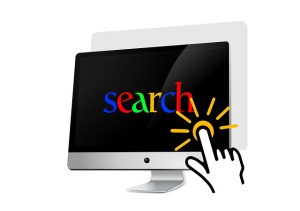Current marketing research makes it clear that in order for a contemporary business to flourish, it must have a strong web presence in the most commonly used search engines, such as Google, Bing, Yahoo, etc. Under the general heading of Search Engine Marketing (SEM), Pay-Per-Click (PPC) and Search Engine Optimization (SEO) are two tools that businesses use in their internet marketing campaigns in order to get their brands in front of their target audiences.
Research also shows that, in many cases, the ultimate success of an online business will often depend on the amount of “traffic” it can generate for its web pages utilizing either, or both, of these two modern marketing methods. However, there are several differences between PPC and SEO, and under certain circumstances, one approach may be preferable to the other.
First, let’s look at SEO. SEO is considered an “organic” method of driving web traffic because it is free, and depends on its success by means of its intrinsic value. SEO employs a number of sophisticated techniques whose aim is to propel a website to the highest place possible on the first page of the major search engines, where it will be seen by the greatest number of people. It does this by providing a website that is “optimized” for search engines.
An optimized web site has the most accurate and well-written content, the most “keywords” that people enter when they are searching for something online, and the widest variety of links to other sites. For example, Google, which is the world’s foremost search engine with over 400 million searches per day, employs a complex algorithm that ranks websites according to their level of relevant and accurate information, and how constantly they provide their searchers with continuing value.
SEO is most beneficial for an online business that wants consistent results, a reputation for authority, and benefits that are more affordable in the long run. Ranking high in search engines takes a long time, but most marketing experts agree that the results are worth the cost and effort.
PPC campaigns are more like traditional advertisements because they are paid listings. PPC ads are the ones you see on a search engine that are above or to the right of the organic SEO rankings. They are in the “Sponsored Ads” or “Sponsored Links” section on a results page. The closer they are to the first page of a search engine, the more they cost. Popular PPC systems include Google AdWords, Yahoo Advertising, and Facebook’s advertising platform. The good news for advertisers is that they only have to pay for their ads each time one is “clicked on” and not every time they are merely viewed.
PPC is more useful for short sales cycles, limited time promotions, or new websites that need to get immediate exposure. A business can get a first page listing almost immediately – if it is paid for. On the other hand, PPC campaigns disappear as soon as a business stops paying for them, which means their existence is usually much more temporary than an SEO listing. However, if there is an adequate budget, and sales need to be made quickly, a PPC ad can be very effective.
Research shows that PPC ads have a slight edge in conversion rates (the percentage of users who buy a product or otherwise do something else based upon their searches) over SEO listings, because the people who click on them are conducting more specific searches and, thus, are more likely to act. PPC ads are also appropriate when a website isn’t particularly designed for SEO.
 1-844-47-Click (1-844-472-5425)
1-844-47-Click (1-844-472-5425)

